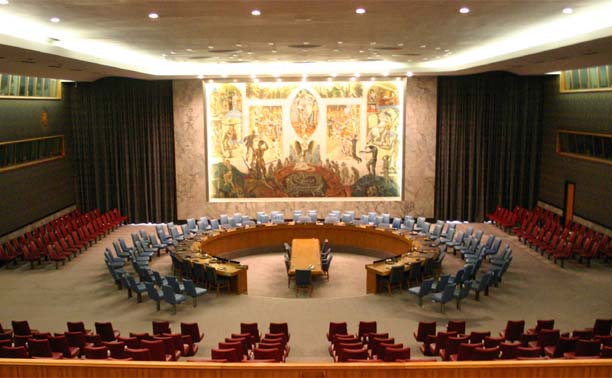Pages: << 1 ... 10 11 12 13 14 15 16 17 18 19 20 ... 1278 >>
The Catholic Church and Its Enduring Role in Promoting Overpopulation in the Global South
Bridget Vira Sanders
Despite its moral framing as a protector of life and family, the Catholic Church has long played a central — and arguably detrimental — role in promoting population growth in the Global South. Under the steely moral gaze of Pope John Paul II, the Church served not merely as a spiritual institution but as a global demographic engine. Its vehement opposition to contraception, especially in Latin America, has created an enduring system in which overpopulation fuels migration, sustains poverty, and benefits both the Church and the empire.
Key Papal Visits and Statements: Fertility as Doctrine
Pope John Paul II made several visits to Latin America, including Mexico, Brazil, and the Dominican Republic, where he consistently reaffirmed the Church's stance against artificial contraception. His teachings emphasized the sanctity of life and the importance of family, not simply as spiritual values, but as institutional mandates.
Rahm, Hakeem, and Special Places in Hell
By David Swanson, World BEYOND War
People sometimes get away with a certain kind of evil action precisely because most of us have a hard time imagining the levels of cruelty or cynicism involved.
Rahm Emanuel, booster of militarization in Japan as U.S. Ambassador, apologist for racist police violence and closer of schools in Chicago as Mayor, and Democratic Caucus Chairman in the U.S. House of so-called Representatives from 2007 to 2009, did something evil in January 2007. This was just after antiwar voters had handed his Democratic Party the U.S. Congress to end the war on Iraq. That demand had been the top issue in the exit polls. Emanuel made clear to a friendly Washington Post reporter that he hoped to keep the war on Iraq going for two more years in order to “oppose” it again in another election.
The Google Boot
by Schuyler Ebbets
“Free speech is my right to say what you don't want to hear.” - George Orwell
Google uses their AdSense platform to exert monetary pressure on websites in order to restrict their content and ultimately their freedom of speech. It isn't about telling people how to construct bombs or pornography, It's about ideas and concepts, both political and societal, the very thoughts and ideas our founding fathers wanted to protect.
Google isn't a "government entitle" and isn't bound by the United States Constitution. More than ever corporations have the power to stifle and control freedom of speech because most speech is now conducted on the internet, an internet they own.
During the time of our founding fathers the written word was the most advanced medium of communication available. It was protected by the First Amendment of the United States Constitution. That was the original plan, to protect ideas and concepts, both political and societal from the control of the king of England and his government.
With the advent of the internet we are loosing our most important constitutional right, the freedom of speech. Like the written word used by our founding fathers to express themselves two hundred years ago, the written and spoken word on the internet is now the most advanced medium of communication available. America is evolving technologically and devolved culturally.
An ideological revolution is required to restore our God given right to freedom of speech in this modern world. Without the restoration of freedom of speech and freedom of expression our world will be transformed into a techno Hell where all communication is tightly controlled and specific words are banned. Ultimately the corporations and the people who own them want total control over all ideas and concepts, both political and societal, expressed on the internet.
The corporate elite realize that freedom of speech is the most important right. When people no longer have freedom of speech they can be controlled. The control of speech is the key to controlling the direction of society and civilization itself.
Try to imagine a dystopian nightmare future for humanity. A world of crushing authoritarianism and harsh punishments. Technology watches everyone always and there is no freedom of speech, no freedom to love or to have real friendships. Total societal control and the control of language are the goals of a tiny handful of unseen ruling elites, who hide behind the corporate persona.
"If you want a vision of the future, imagine a boot stamping on a human face - forever" - George Orwell
Google said; "Ads are disabled on one or more of your sites - no ads are serving on one or more of your sites because of policy violations. Please investigate the reasons for this in the Policy Center."
Four years ago thepeoplesvoice.org's twenty one year relationship with Google AdSence was suspended for posting mostly YouTube videos questioning the media's COVID narrative. Believing that the COVID controversy had long since ended thepeoplesvoice.org recently requested that Google end the four year punishment and reinstate their AdSense account.
Two weeks later on April 23, Google AdSense, responded to the request saying: thepeoplesvoice.org Is guilty of "Unreliable and harmful claims", "Dangerous derogatory content," and "Shocking content". Therefore the request to reinstate Google ads on thepeoplesvoice,org web site was rejected.
According to Google thepeoplesvoice.org is guilty of violations in three areas: Policy issues, Regulatory issues, and Advertiser preferences. The issue location according to Google is the "Entire site" which was text linked to thepeoplesvoice.org Home page, indicating literally every page of thepeoplesvoice.org is in violation. All the news links, videos, articles about food, health, aging, world history, politics, everything. Every page contains dangerous, derogatory, unreliable, harmful, and shocking content".
Google provides information about how and what causes these violations:
"Understand policy issues, regulatory issues, advertiser preferences, and ad serving statuses"
https://support.google.com/adsense/answer/15689616#advertiser-preferences
"Learn more about our policies"
https://support.google.com/adsense/answer/15689616#policy-issues
"Google Publisher Restrictions"
https://support.google.com/publisherpolicies/answer/10437795#content_restrictions
"Regulatory issues"
https://support.google.com/adsense/answer/15689616#regulatory-issues
"Learn more about advertiser preferences"
https://support.google.com/adsense/answer/15689616#advertiser-preferences
thepeoplesvoice.org could be considered guilty of violating the "Shocking content" policy by publishing pictures of dead Palestinian children. That is the only possible violation that could be found. Google's accusation that every page contains "dangerous and derogatory content", "Unreliable and harmful claims", and "Shocking content", is absurd. Therefore one can conclude, the unending suspension of the thepeoplesvoice.org's AdSence account is politically and ideologically motivated, and a veiled attempt at censorship.
It appears that Google puts a globalist agenda ahead of profits.
Are your Google ads reaching the widest possible audience?
If Google isn't letting the thepeoplesvoice.org run your ads they're stopping other legitimate websites, simply because those sites contain ideas and concepts, both political and societal that contradict an agenda.
Do you want to enrich a company that doesn't respect your right to freedom of speech and reading/posting in a free press?
-###-
The Google Boot
https://www.thepeoplesvoice.org/TPV3/Voices.php/2025/05/10/the-google-boot
The God Algorithm: How the Vatican Found Faith in the Surveillance State
Tracy Turner
The College of Cardinals elected Robert Francis Prevost on May 8, 2025, as the 267th pope of the Roman Catholic Church, a record since he was the first-born American pontiff. His election, which was international news, was not only significant to the Church's American constituents but also as a notable event to the world religious scene, which continues to evolve in an era increasingly characterized by technology and surveillance. Prevost's election is more than a national milestone; it is the latest chapter in the Vatican's complex history with power, technology, and global politics. The first pope born in the United States was elected, which shows the growing influence of the Western Hemisphere on global geopolitics and religions.
For the Vatican, an institution that is two thousand years old, the adoption of technology strategies and online platforms has been a vital element in the protection of sacred rituals and the institution's longevity. The 2025 Sistine Chapel conclave came with heightened security arrangements, a reminder of just how the conservative ethos of the Vatican had to coexist with the modern day of cyber-attacks, online rumors, and international scrutiny. Over 100 journalists and thousands of visitors were moving in on St. Peter's Square, and the conclave was fully shut off, cellular networks temporarily disconnected, and drones overhead to protect confidentiality. The worth of guarding the dignity of the papal election process, especially in modern times, remained topmost to the church as well as to its many worldwide followers (people.com).
Graduating into Modernity is not for the Faint of Heart
By Mark Aurelius
"Fate is the hand of the gods."
Sophocles
"In the end we will remember not the words of our enemies, but the silence of our friends."
Martin Luther King
"We are not creatures of circumstance; we are creators of circumstance."
Benjamin Disraeli
As a new wave of millions of students graduate from high schools, colleges, trade schools, etc., they will hear various ‘platitudes’ as good advice, to take to heart when going forward into this complex world to live as adults in society. This is, of course, if they are even allowed to graduate. Checkout:
NYU Demands Law Students Renounce Protests or Be Barred From Sitting Final Exams
Programmed to Obey: Inside the Synthetic Reality Engine
Tracy Turner
At the center of this artificial world is an unholy trinity: the state, the technocratic oligopolies, and the algorithmic monstrosities they own. They conspire together to spin a tale as pliable as it is perilous—a world where facts are no longer fixed but extruded to mold collective consciousness. Truth is no longer a reflection of reality; it is a commodity, bought, stamped, and tampered to fit the agendas of the elite. Reality in such a world is not felt—it is ordered.
Will America Survive?
Paul Craig Roberts
The foreign policy of the United States is in the hands of the least capable, most uninformed, and most reckless morons the American education system has yet produced, and their successors, if any, will be worse.
American aggression toward the world is hidden under a euphemism: “national defense.” In past years before euphemisms took over from reality, the Secretary of Defense was known as the Secretary of War.
Washington conducted wars against Mexico. Against the Confederate States of America. Against the native American Indians. Against Spain from whom Washington seized Cuba and the Philippines. Against varied Central and South American countries–remember US Marine Commander Smedley Butler, twice decorated with America’s highest honor, who said that he and his US Marines were the enforcement squad in Latin America for the United Fruit Company and the New York Banks who were exploiting Latin America to the hilt, backed up by the bayonets of the US Marine Corps.
The Power of Growth: Lifelong Learning as a Compass for Community Leaders
by Janet Campbell

Image via Pexels
In the ever-evolving landscape of leadership, remaining static is not an option. Community leaders are the pulse of neighborhoods, towns, and cities, often acting as the bridge between diverse populations and policy, service delivery, or collective change. Yet, leadership is not a destination—it’s a process that thrives on continuous adaptation. Lifelong learning gives community leaders the tools to better understand emerging challenges, refine their strategies, and inspire those they serve. It’s not just about accumulating knowledge; it’s about actively applying it for the betterment of communities.
On the Key Points of Contemporary International Relations: Responsibility to Protect and Humanitarian Military Intervention
Dr. Vladislav B. Sotirović
War and the Responsibility to Protect (R2P)
The R2P is one of the most important features of the post-Cold War global politics and international relations (IR) regarding the relations between war and politics, which was formalized in 2005, focusing on when the international community (the UN) must intervene for human protection purposes. The R2P was officially endorsed by the international community by the unanimous decision of the UN General Assembly as a principle at the UN World Summit in 2005. This agreement was regulated in paragraphs 138−140 of the documents of this World Summit. There are three crucial decisions concerning the principle of the R2P:
| 1) | Every state is responsible for protecting its population, in general, that means not only the citizens but more broadly all residents living within the territory of the state from four crimes: a) genocide, b) war crimes, c) crimes against humanity, and d) ethnic cleansing. |
| 2) | The international community has the responsibility to encourage and assist states for the sake that they will realize their fundamental responsibility to protect their residents from the four crimes defined in the first decision. |
| 3) | In the case, however, that the state authorities are „manifestly failing“ to protect their residents from the four crimes, then the international community has a moral responsibility to take timely and decisive action on a case-by-case basis. In principle, those actions include both coercive and non-coercive measures founded on Chapters VI−VIII of the UN Charter. |
Exposing Alphabet: Google and YouTube Censorship and the Corporate Colonization of the Mind
Robert David
In the vainglorious palaces of Silicon Valley, where surveillance masquerades as convenience and censorship is rebranded as "community safety," stands Alphabet Inc.—a sprawling, hydra-headed conglomerate whose flagship tentacles include Google and YouTube. What began as a search engine guided by the whimsical motto "Don't Be Evil" has metastasized into a monopolistic behemoth that dictates global discourse, rewrites epistemology, and curates reality itself. Alphabet, cloaked in the euphemisms of innovation and openness, has erected a digital imperium wherein dissent is algorithmically disfigured, and narratives unaligned with corporate-state orthodoxy are herded into oblivion.












